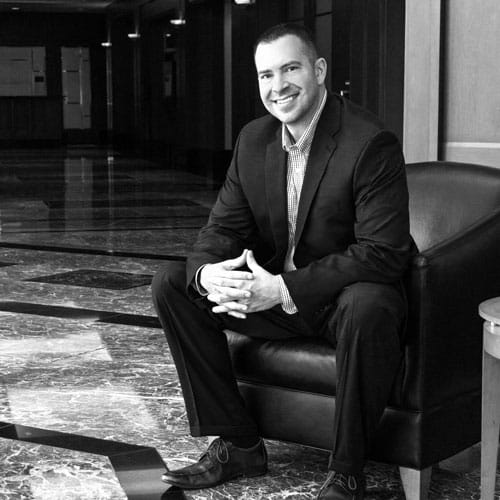Wei-Li Chong got an alert on his smartphone and pulled up an e-mail. What he found surprised him. It was a YouTube video of overjoyed teachers dancing in the hallway. Chong is executive vice president of people and family experience for KinderCare Education, the largest private early childhood education provider in the United States.
Days before receiving the video, he had stood before company leaders at a conference and asked them to vote by text on a hot-button issue: should the company allow its teachers to wear jeans to work? After most leaders voted yes, Chong immediately sent a communication to each of the Portland-based company’s 1,500 learning centers. Teachers—freed from their life of slacks and khakis—celebrated the news.
Although the change may seem small, Chong says it represents a new direction for KinderCare Education, formerly known as Knowledge Universe Education. “We struck a chord with our workforce throughout the country, and we did this by listening to what’s important to them,” he says. It’s part of a bigger cultural turnaround started in 2012 by a new leader—former Old Navy CEO Tom Wyatt.
When Wyatt took the reins four years ago, KinderCare Education had just closed out its fourteenth quarter of financial decline, and leaders faced a strong culture of fear. Wyatt asked Chong and other leaders to create a company known for educational excellence and knew the only way to do that was by transforming the culture to focus more on employees and the families they serve.
Read more of Profile’s Top 50 articles.
“We knew we needed to build an environment that our employees could be proud of,” Chong says. “In the past, we told our people and our centers what to do, but now, we listen and we inspire them to do what’s right in their own community.”
Employees who manage a center (branded as KinderCare, Children’s Creative Learning Centers, or Champions) are now empowered to build the best possible environment to meet the needs of their employees and the communities they serve. What works on the West Coast, for example, might not translate exactly for a Midwestern center. As the conversation in the United States shifts from day care to early learning, Chong knows how important it is to place importance not just on teachers, but on the connections those teachers have with children and their families.
Those connections are increasingly important, so Chong works to give each center manager a clear understanding of what’s working for their employees and families and what could be better. “Many companies use focus groups, surveys, and other tools to generate a top-down approach to action planning, but we do the opposite,” Chong says. “We conduct extensive research among our employees and families, and we provide individual reports for every single center. We empower them to respond based on what they think is the most important in their situation.”
In the fall of 2014, Chong asked the company’s CEO to join other senior leaders on a national tour. Together, they sat down in front of families for what he calls “engagement receptions.” The executives ask questions and listen to positive and negative feedback about the experiences families have at KinderCare Education’s facilities. So far, the team has visited nine major markets, with nearly a dozen more planned through the end of 2016.
Chong, who has a background in retail, has found that talent is more important than formal training in his new industry. “I’ve spent a career proving the power of talent, but education companies live and die on talent and culture,” he says. Driven to maintain a safe environment for its children, KinderCare Education was once focused on the operational nature of the business, but now, the company is shifting some of that focus to its educators.
Teachers who are the most engaged, and who buy into the company culture, will make the most genuine and lasting connection to the families they serve. That’s one reason why KinderCare Education decided to change its employee discount program to help more employees send their own children to company centers. Now, more than 4,000 employees take advantage of the program.
“The employee discount program is not a financial decision, it’s a cultural decision,” says Chong, adding that those who participate take more pride in their work and become better ambassadors for the company.
Since partnering with Gallup in 2012 to poll employees and implementing changes based on their feedback, Chong and his colleagues are seeing their employee engagement rates improve twice as fast as expected. They’re also polling families on their level of engagement to combine the data.
“When you know what employees think and what families think, you have a special formula to move forward really well,” Chong says. “We can use that data to help centers respond, and creating strong emotional connections correlates with every business outcome we desire to see.”
Building just one successful learning center is a challenge—so how does the company replicate its success 1,500 times? By studying its most important resources. Executives screen job candidates using a selection tool that compares the prospect to the company’s very best educators. Hiring managers then receive a report that shows just how close the candidate is in terms of talent and aptitude to top employees.
Four years in, Chong says the changes at KinderCare Education have produced dramatic results. “We’re improving in all categories, and most of our families say they can’t imagine sending their kids anywhere else,” he explains. “I came here to help make those connections. Our country is far behind in early childhood education, and with 1,500 centers, we have a big chance to impact the world.”


